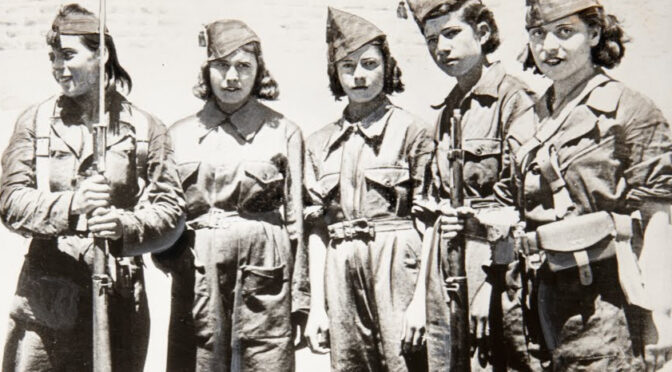Article published in The Daily Telegraph, 6 April 2016. © Richard Kemp
The Ministry of Defence admits it is reviewing military physical fitness standards in preparation for the expected announcement later this year that women will be allowed to serve in all front-line combat units, including the infantry and SAS.
The MoD denies that standards will be reduced, but of course that is precisely what is going to happen. Generals – having put up a fight for many years – have been told women will join front-line units and, like the good soldiers they are, intend to make it work.
The people who have demanded this change – politicians desperate to be seen as “progressive”, feminist zealots and ideologues hell-bent on equality of opportunity without exception – would never dream of volunteering. Indeed only a very small number of women will want to join the infantry and of those only a fraction will have the physical capability. Hence the need to lower the bar.
This is an extremely dangerous move. Physical fitness is the single most important building block for an infantry soldier. Everything else depends on it. The only people who fully understand the demands of infantry close combat are infantrymen themselves. I have not heard a single serving or retired infantryman say that admitting women is the right thing to do – unless their wives or senior officers are listening. The overwhelming majority are vehemently opposed and many have said that if women join they will leave.
Why do feelings run so high? Because every infantryman knows that the price for this social engineering experiment will be paid in blood.
The infantry is different from any other part of the Army and from any other job in the world. Technology has changed the rest of the Army significantly over the decades and women now play a vital role in almost every part of it. It has been my privilege to command many women and I have the utmost admiration for the contribution they make.
But the tactics and equipment, and the demands placed upon the infantry, are in their essentials unchanged in 100 years. Every soldier from 1916 would immediately recognise the basic tools of the modern infantryman’s trade: rifle, bayonet, bullets, grenades – and a murderously heavy pack. Infantry soldiers must still be able to march for miles over harsh terrain in searing heat, bent under the weight of 100 pounds of combat equipment, and then fight face-to-face with a ruthless, tough and determined enemy.
The continued need for extreme standards of physical fitness was reinforced time and again during the campaign in Helmand. The Army’s own research shows that women are twice as likely as men to suffer musculo-skeletal injuries during military training.
Aside from the physical and mental ability of female infantry to overcome and kill male enemy soldiers at close quarters with bayonet, boot and fist, why risk our soldiers becoming casualties on an arduous approach march or long-range combat patrol? In Helmand eight men were needed to evacuate each of their injured comrades, taking soldiers out of battle and putting lives in danger.
Through no fault of their own, women will often become the weak link in an infantry team. The men will have to take up the slack and this will engender resentment and reduce the cohesion that is so vital for effective infantry combat.
The damage will be budgetary as well as tactical. Even in the tranquillity of a peacetime barracks, three RAF women sustained spinal and pelvic injuries due to over-striding to keep pace with the men on parade.
They were awarded £100,000 each. The RAF’s remedy was to shorten stride-length and place women at the front of the squad to set a reduced pace for the men – an ominous indication of things to come for the infantry.
Other than equal opportunities the Government has failed to put forward any arguments for lifting the ban on women in the infantry. That is because there are none. This foolish move will reduce the capability of the infantry, undermine our national defences and put lives in danger.

